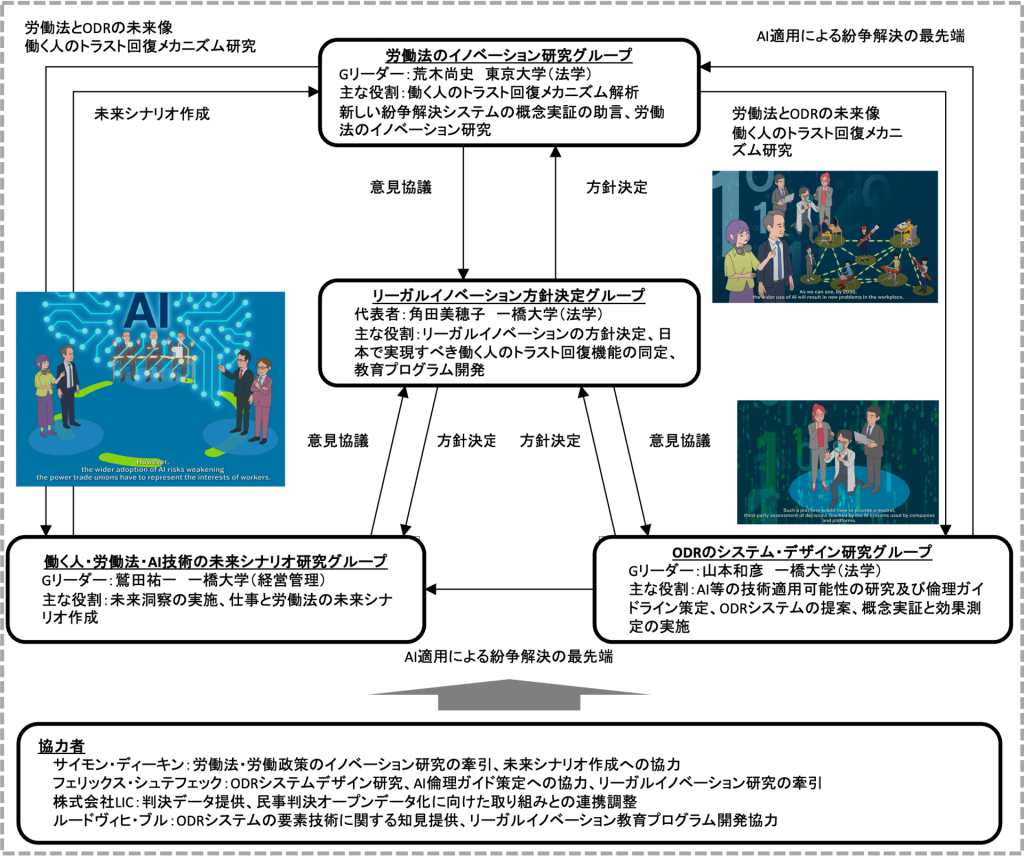Innovative digital technologies are transforming our lives and society, and our next topic in our exploration of justice appropriate for Society 5.0 will focus on conflicts that arise as a result of changes in work and working styles, aiming to create a society where conflict resolution can be achieved smoothly.
The changes that will take place in the labour market will create a more diverse and complex division of ’employee’ in the legal definition or categorization and those engaged in a wide range of ‘tasks’ (more broadly referred to as ‘workers’). With the rise of the ‘gig economy’ we have also seen an escalation in the complexity of employment relationships. In an increasingly fragmented society, labour law guarantees legal protection to ‘workers’ who are forced into a vulnerable position. As a safety net for ‘workers’, labour law guarantees them the right to ‘connect’ and the freedom to associate, i.e. to organise and negotiate in trade unions. However, the expected roles and functions of labour law are not, in reality, being fully fulfilled.
This project aims to connect ‘workers’ who have been fragmented and lost their trust, to connect the parties in labour-management disputes, to guarantee access to a new dispute resolution system for all ‘working people’, and to create a society in which the lost trust can be restored.
Specifically, ❶ we will conduct research using a UK technology start-up company as a model, which provides tools to ‘connect;’ divided ‘workers’ and has acquired collective bargaining power, to clarify the mechanism in social scientific and technical terms, to then ❷ identify the trust recovery function that should be realised in Japan. ❸ We will hold future insight workshops in Japan and the UK on the topic of “Working people, labour law and the future of AI technology”, and clarify the differences in the understanding of labour market trust indicators in Japanese and UK society. Based on the results of these efforts, ❹ we will design social institutions and develop elemental technologies for a dispute resolution system suitable for labour-management disputes, ❺ we will conduct proof-of-concept design and application of a dispute resolution system with the cooperation of labour-management dispute resolution institutions and labour law think-tanks in Japan, and investigate its efficacy and the trust recovery evaluation of the parties, and ❻ formulate a guide for the introduction of AI into dispute resolution.

